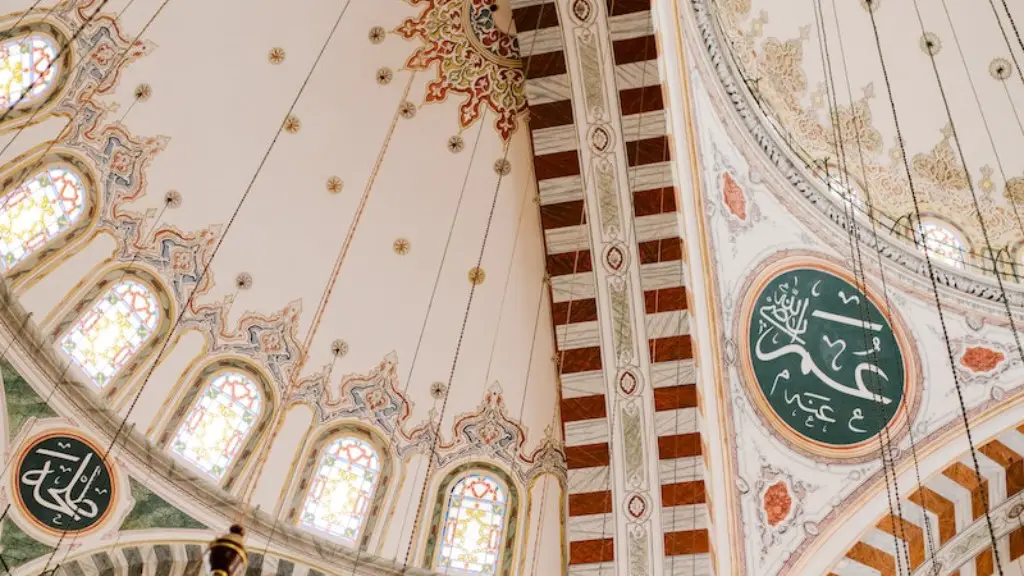Hinduism is an ancient Eastern philosophy that considers the soul to be the feature generally defining a human’s individuality. It is argued that the soul enters the fetus early in the developmental stages, at or before conception. Hinduism is unique amongst the religions in that it holds that the soul is already in existence before we enter into the world. Since the soul can never be created or destroyed, it is argued that the soul is merely changing physical representations as it goes through its journey through the cycles of birth and rebirth. This firm belief in reincarnation speaks to the strength of the Hindu belief in the existence of the soul.
The soul enters into the fetus in the early stages of development, at the point of conception. Hindus believe that the soul is eternal, existing even before the body is formed. It has been said that the soul enters into the womb of its mother shortly after the egg and sperm have united, claiming the body that it is to inhabit for its lifetime. The exact moment at which the soul enters the body is a matter of debate, as varying sources in Hinduism describe the soul’s entry as either at the point of conception, or within the first ten days of implantation.
There is also a debate over the method in which the soul enters the fetus, with some Hindu theologians advocating the belief that a single particular soul is assigned to a particular fetus, and others arguing that the soul is already within the universe but only links up with the developing fetus once it reaches a particular point of development. These different beliefs are part of a long tradition dating back much further than the earliest of Hindu texts, with ideas being formed as early as 1500 or 2000 BCE.
The belief in a soul, as considered in Hinduism, has also undergone important changes over time, beginning as an all-pervasive concept and later being seen as a separate entity, independent of the all-pervasive soul. The later belief held that the soul was both separate from the all-pervasive higher soul, and capable of independent actions and thoughts. This later view of the soul is closely reflected in modern Hinduism.
Hindu theologians believe that the soul does not enter the body randomly or unpredictably, but instead is drawn to the body like iron filings to a magnet. The soul is thought to be naturally attracted to the body it will inhabit, and upon entering the body, enters into its complete dependency upon the physical body for survival. It is precisely this week dependency upon the body that is thought to be the reason why recognizing one’s own soul can be so difficult.
The idea of a soul entering the fetus during a certain part of the development process is deeply embedded within Hindu belief and has been a source of comfort to Hindus, while providing additional complexities and ethical considerations associated with interfering with the fetus, which is seen as a being with a soul already inside. Ultimately, the belief in the soul being already in existence in the universe, before entering the fetus, is a unique and integral part of Hinduism and its followers.
The Doctrine of Karma
At its core, the doctrine of karma is the belief that our deeds and actions are the means by which we experience life. It states that our actions in this life determine how we fare in the next life, and conversely, the actions of oural past life can influence our current life. Thus, it is believed that our souls enter the fetus already having their own individual karma, and that our role in this life is simply to manifest this karma.
The Hindu law of karma states that each soul enters the fetus with a certain karma that can be divided into two separate parts. The first part is the innate, samskaric karma, which consists of the latent tendencies and motivations that are said to be deep-seated within us. The second part of our karma in Hinduism is the acquired karma, which is derived through our actions throughout our lifetimes. In other words, the acquired karma is how we act in response to the samskaric karma that we were given at birth.
It is said that our soul re-enters into the world with a mixture of both samskaric and acquired karma, with the samskaric karma being the inherent tendencies and propensities that shape our life, and the acquired karma being the present attitude and ways of thought processes that we have acquired as a result of our experiences.
Therefore, when we consider the moment in which the soul enters into the fetus, we cannot overlook the notion of karma. Hindus believe that all of our experiences in life, even reaching back to our previous lives, have an effect on the decisions, thoughts and actions that we take. Our previous karma influences our current experiences and decisions, and in turn, our current karma influences our future karma and experiences. It has been said that this cyclical pattern is never ending, and it is indeed this understanding that allows us to comprehend the divine mystery of soul’s entrance into the body.
The Role of The Gods in Hindu Beliefs
Hinduism is a polytheistic religion with a pantheon of gods, each embodying a distinct quality, ideal and power. These gods and goddesses are seen as sources of wisdom and guidance, and their roles and actions in the universe play an important part in Hindu beliefs surrounding the soul and its entry into the body.
In Hindu belief, all living beings during their journey through many lives, move gradually closer to the gods, evolving and progressing as they come closer to spiritual enlightenment. When the soul is ready and has reached a certain level of spiritual development, it enters the body. This is seen as the gods granting that soul the opportunity to reach enlightenment in the present life, and signifies a level of recognition and trust in their capacity to continue the journey.
It is believed that the gods and goddesses play an important part in the development of the fetus. One way this is expressed is in the offering of blessings to the soul entering the body. Hindus claim that these blessings allow the soul to make its transition into the body and life more smoothly, aiding in the process of human development and physical growth. There are many rituals and prayers connected to these blessings.
The gods and goddesses also play an important role in the protection of the developing fetus. It is believed that their guardianship grants protection from both physical and spiritual harm. Many Hindus will offer prayers to these gods and goddesses throughout the pregnancy, asking for their protection and guidance as the fetus goes through its development.
The Significance of Prebirth Rituals in Hinduism
Prebirth rituals have been an integral part of Indian Hindu culture for centuries, and are deeply connected to the belief in souls entering the body. Prebirth rituals are often seen as a source of comfort and protection, with their purpose being to ensure the safe passage of the soul into its new home.
The rituals differ depending on region, but all involve the mother performing certain rituals that are said to aid in the soul’s journey. Some examples of these rituals include praying to the gods and goddesses, making offerings to the gods, and chanting mantras dedicated to the gods. Many Hindus also perform rituals specifically designed to protect the fetus from harm and ensure that the soul is able to enter the body without any obstructions.
Prebirth rituals are also seen as a way to strengthen the bond between mother and fetus. It is believed that it helps to build the connection between the mother and fetus by providing emotional comfort and reassurance that the soul is safe. It is thought that this emotional comfort is necessary for the healthy development of the unborn baby and that it provides the necessary energy for the soul to make its transition.
The Physical Impact on The Fetus
The belief that the soul enters the fetus at the point of conception is also thought to have an impact on the physical development of the fetus. It is believed that the presence of the soul affects the development of the fetus in a way that can be seen by humans.
The most visible impact of the soul’s entrance into the body is in the formation of physical characteristics, such as facial expressions and mannerisms. It has been said that these physical attributes are the result of the soul’s presence in the body and that they are shaped by the karma the person has accumulated in the past. This is why it is said that some physical characteristics can be seen in certain families over generations, being passed down from one generation to the next.
It is also believed that the soul’s entrance has an effect on the physical development of the fetus on a much deeper level. It is said that the presence of the soul in the body can help guide its development, allowing for greater coordination between the body and soul. It is also thought that the presence of the soul in the body can nourish it, allowing the fetus to grow to its fullest potential.
The Impact on Pregnancy and Birth
The belief surrounding the entrance of souls into the fetus is also seen to have an impact on the pregnancy and birth process and the way it is approached. Many Hindus choose to take great care and precaution throughout the pregnancy, believing that the soul is already present in the fetus and that they must take care to ensure that it is not disturbed or harmed in any way.
As such, many Hindus choose to abstain from activities that could potentially harm the fetus, such as smoking, excessive drinking and drug use. They also choose to focus on positive practices, such as meditation, healthy eating and prayer, believing that these activities can aid in nourishing the fetus and protecting it from harm.
At the time of birth, many Hindu families choose to perform rituals and prayers to ensure that the soul enters the body smoothly. This is believed to provide protection from any potential harm and ensure a safe transition for the soul. These traditions are taken very seriously by Hindus, and are seen as essential for the health and well-being of both mother and fetus.
In conclusion, many Hindus firmly believe that a soul is present in the fetus even before birth, and that it enters the body at or before conception. As such, they believe that there are a variety of ways that this entrance can affect the development of the fetus, as well as the pregnancy, birth and post-birth process. The impact of the soul’s entrance into the fetus is an important part of Hindu belief and is taken very seriously by Hindus from all over the world.

